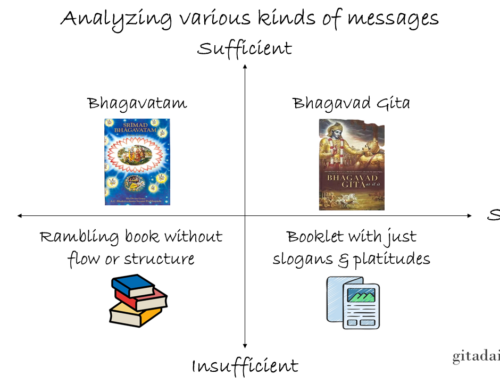Our culture bombards us with irrelevant information. The attack on an embassy in Africa, a tennis tournament in America, an election in Europe – does such information change what we need to do today? Or even the day after? Not very frequently.
Never before in human history have people been fed so much information about which they can do nothing. Our society judges information not by its functional utility, but by its entertainment capacity. We have made relevance irrelevant.
Does this analysis suggest that we stay totally uninformed about worldly events? No, though we could substantially decrease the time we spend on getting information without losing much except the capacity to appear “informed” in pointless chit-chatting about irrelevant subjects.
The main purpose of this analysis is to help us realize that our culture has profoundly changed the way we look at information, a change that significantly alters our approach to scriptural information in two major ways:
- Superficiality in study: Because we are so habituated, even addicted, to be entertained by new information, we look for similar new entertaining stuff while studying the Bhagavad-gita. On not being titillated, we dub the Gita “boring.”
- Lethargy in application: Because we habitually don’t do anything about the information we acquire, we similarly don’t apply the information we acquire from the Gita like, say, happiness is found not in material things, but in spiritual love for Krishna. Due to our lethargy in application, Gita reading doesn’t benefit us much.
If Gita wisdom is to enrich us, we need to change the question that we ask while reading the Gita: not “What’s new today?” but “What can I apply today?” The Gita itself points to this approach when it reports (18.73) that Arjuna was determined to apply what he had learnt.
Bhagavad Gita Chapter 18 Text 73
“Arjuna said: My dear Krishna, O infallible one, my illusion is now gone. I have regained my memory by Your mercy. I am now firm and free from doubt and am prepared to act according to Your instructions.”





Leave A Comment